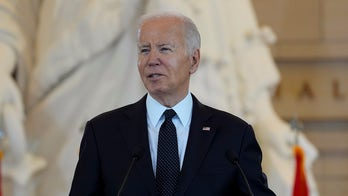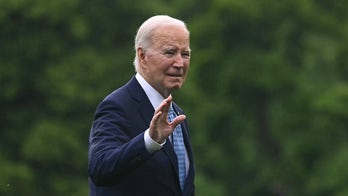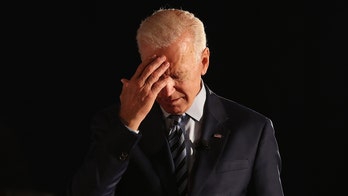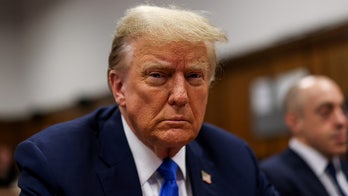The White House says the Obama administration is making strides in the fight against Ebola, citing an expanded hospital network and testing capacity at home and gains confronting the deadly disease in West Africa. To sustain that, President Barack Obama was prodding Congress Tuesday to approve his request for $6.2 billion in emergency spending against the outbreak.
Obama was to visit the National Institutes of Health in Washington's Maryland suburbs Tuesday to highlight advances in research for an Ebola vaccine. He planned to congratulate NIH director Francis Collins and the director of NIH's National Institute of Allergy and Infectious Diseases, Anthony Fauci, for their work on a vaccine.
The public attention to Ebola by the president comes as Congress is assembling a massive spending bill to keep the government operating. But the legislation has become entangled with Obama's executive actions on immigration, which Republicans want to block.
Any final spending bill is expected to contain a pared down version of Obama's Ebola request. Obama asked for $2 billion for the United States Agency for International Development, $2.4 billion for the Department of Health and Human Services, and more than $1.5 billion for a contingency fund, the first item that lawmakers would likely trim.
The White House said Tuesday that Obama Ebola Response Coordinator Ron Klain, in an update to Obama, reported that the U.S. is better prepared to deal with Ebola at home and that administration efforts to confront the virus in Liberia, Guinea and Sierra Leone are further along than two months ago.
The administration announced Tuesday that it has set up a network of 35 hospitals across the country to deal with Ebola patients. It also said that the number of labs that can test for Ebola has increased from 13 in 13 states in August to 42 labs in 36 states.
The White House said the administration has also increased the deployment of civilians and military personnel in West Africa, bumping the U.S. presence to about 200 civilians and 3,000 troops. It said the U.S. has opened three Ebola treatment units and a hospital in Liberia.
The upbeat White House report contrasts with an assessment from Doctors Without Borders, which said Tuesday that the international response to the Ebola crisis in West Africa has been slow and uneven. It said the international community has for the most part concentrated on building Ebola management structures, but most of the hands-on work is being done by local people, national governments and non-governmental organizations.
White House spokesman Josh Earnest acknowledged that stopping the outbreak in West Africa still required additional efforts. "As long as people are suffering from the Ebola virus, we know that they are at risk of spreading that disease," he said Tuesday.
Obama's attention to medical advances comes after a study published by U.S. researchers last week concluded an experimental Ebola vaccine appears safe and triggered signs of immune protection in volunteers who tested it.
NIH researchers last week reported that the first safety study of an Ebola vaccine candidate found no serious side effects, and that it triggered signs of immune protection in 20 volunteers. U.S. health officials are planning much larger studies in West Africa -- starting in Liberia in early January -- to try to determine if the shots really work.
Additional small safety studies are under way in Britain, Mali and Switzerland. Previous research found the vaccine, being developed by the NIH and GlaxoSmithKline, protected monkeys from Ebola, but that the protection waned unless the animals received booster shots.
A second vaccine candidate, this one made by the Canadian government, also has begun first-stage safety testing in the U.S.




